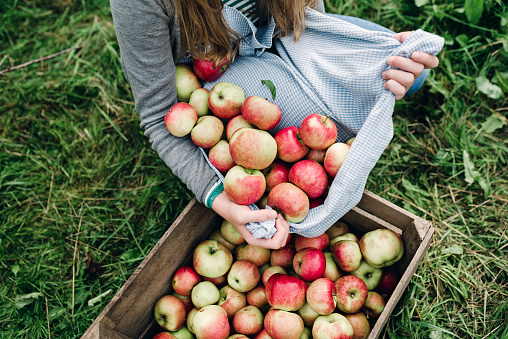



Article by: Hari Yellina
Shoppers are being cautioned that cost-of-living pressures are likely to worsen starting today, as farm pay increases all across the country have the potential to raise the cost of fruits and vegetables. It’s the first day of a new wage framework for horticultural employees, marking one of the most dramatic shifts in Australian agriculture in recent memory. Workers who select or pack fruit on a piece rate basis — that is, who are paid based on how much they harvest — now have a set wage under the new guidelines. It comes after a late-last-year judgement by the Fair Work Commission, which many farm groups protested, claiming it would disincentivize productive workers.
While a minimum wage guarantee was “a wonderful thing” and much work had been done in the build up to the new system to ensure farms comply, it was “likely” to raise fruit prices at the supermarket, according to Peter Cornish, chief executive of Fruit Growers Tasmania. “Cost pressures will be increased. Whether or if this translates into [sale] prices are another question, but there will undoubtedly be pressure “he stated. “If they have to top up workers who are under the minimum wage, it means increased costs, which could lead to higher fruit prices.”
Growers must pay at least $25.41 per hour to all harvest employees under the Horticulture Award, though they might earn extra for increased output. The Australian Labourers Union (AWU) took the complaint to the Commission following years of headlines about farm workers being poorly underpaid. “The existing pieceworker rules in the Horticulture Award are not fit for purpose,” the Commission’s whole bench said. Some producers are employing piece rates to pay workers as little as $3 an hour, according to AWU national secretary Daniel Walton. “There were a lot of underpayments. That’s the evidence we presented, and it’s what the independent umpire determined was sufficient to establish the salary floor “he stated.
Farmers could still incentivize workers to be more productive in a way that benefited everyone, according to Mr Walton. “What this also does is prohibit those dishonest, shady businesses from paying workers well below the award,” he said, citing numerous cases around the country. Producers have had various reactions to the shift, but most believe that, for better or worse, it will fundamentally transform the way fruit and vegetables are grown and harvested. Burlington Berries, a grower south of Launceston, has Laurie Adams as its general manager. Similar restrictions were imposed in the United Kingdom in 2012, and he anticipates similar outcomes. “It’ll be a more structured workplace, more suitable for the professional workers and unfortunately less viable for backpackers, students, semi-retired people who liked to come in a few days a week and were happy to earn some cash in hand,” he said.